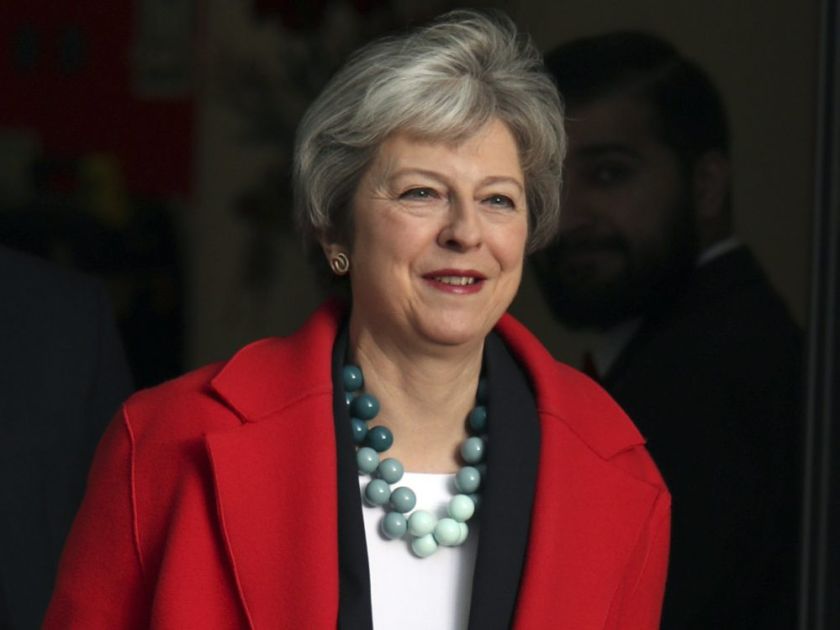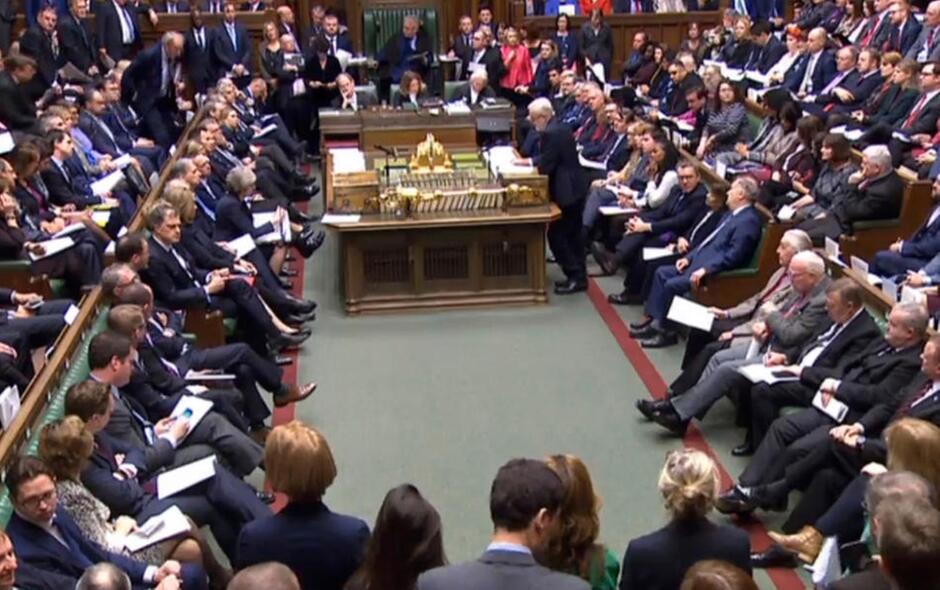
LONDON (AP) — Britain’s government and its lawmakers clashed Wednesday, as Prime Minister Theresa May brought her little-loved Brexit deal back to Parliament, a month after postponing a vote on the agreement to stave off near-certain defeat, reports Associated Press.
In this grab taken from video(House of Commons/PA via AP), Britain’s Labour leader Jeremy Corbyn speaks during Prime Minister’s Questions in the House of Commons, London, Wednesday, Jan. 9, 2019. The British government brought its little-loved Brexit deal back to Parliament on Wednesday, a month after postponing a vote on the agreement to stave off near-certain defeat. The House of Commons opened five days of debate on an agreement with the European Union setting out the terms of Britain’s departure from the bloc on March 29. A vote, initially slated for mid-December, is now scheduled for Tuesday — and the government still looks likely to lose.
Vote for the Deal
May insisted that her agreement was the only one available, and the only way to prevent a disruptive «no-deal» Brexit in just over 10 weeks. «The only way to avoid no deal is to vote for the deal,» May told lawmakers in the House of Commons. May called off the December vote at the last minute when it became clear that a majority of lawmakers — from the governing Conservatives as well as opposition parties — opposed the deal, a compromise that has left both pro-European and pro-Brexit politicians unhappy.
May promised to seek reassurances from the EU on the most contentious issue, the status of the Northern Ireland-Ireland border. But the bloc refuses to reopen the agreement, and opposition to the negotiated deal remains strong among British lawmakers.
The government previously had 21 days to report back to Parliament. It was the government’s second Brexit-related defeat in two days. On Tuesday, legislators backed an amendment to the Finance Bill that puts roadblocks in the way of government spending on no-deal Brexit measures. The vote, which saw 20 legislators from May’s Conservative Party rebel and side with the opposition, indicates that a majority in Parliament opposes leaving the EU without an agreement and will try to stop it happening.
Second Referendum
But there is no clear majority for any single alternate course. Among the competing proposals are postponing Brexit to seek a new deal, calling a general election or holding a second EU membership referendum. Labour said it would try to trigger an election by calling for a no-confidence vote in the government if May’s deal is defeated next week. There’s no guarantee Labour could marshal the majority support in Parliament needed to topple the government — and even if it did, a new election would not automatically stop the Brexit countdown clock.
Carry Responsability
A top European parliamentarian urged British lawmakers to show «responsibility» over the divorce deal. Manfred Weber, a German conservative who heads the biggest group in the European Parliament, said in Berlin that «our colleagues in Britain’s lower house carry great responsibility now — the agreement is on the table.»
Weber said a no-deal withdrawal would «lead to very difficult, perhaps even chaotic situations.» Britain’s de-facto deputy Prime Minister, David Lidington, said politicians must abandon «fantasies about magical alternative deals that are somehow going to sort of spring out of a cupboard in Brussels.»He said the choice was between May’s deal, no deal or «to reverse the 2016 referendum entirely.»
Follow AP’s full coverage of Brexit at: https://www.apnews.com/Brexit. Geir Moulson in Berlin contributed to this story.




